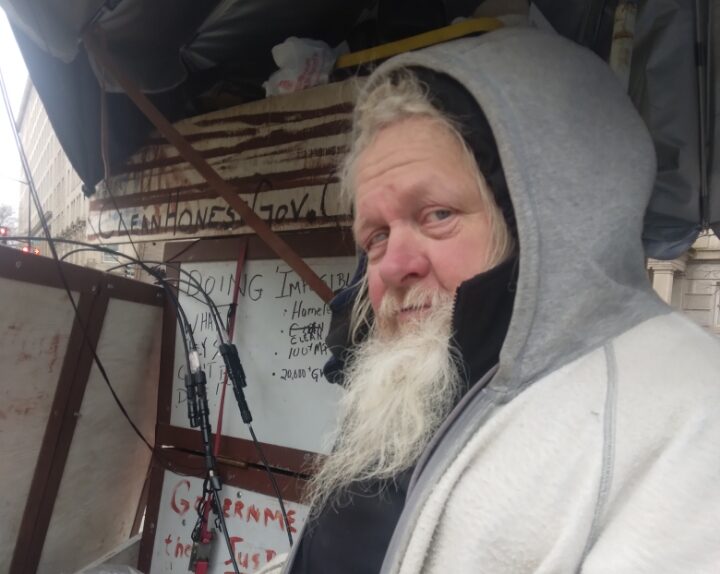As we have all seen on our streets and in the media, family homelessness over the past three years is skyrocketing. The recent mortgage crisis has escalated the numbers even more.
In the face of these growing numbers of families losing their homes, having to split up for survival’s sake and even some children ending up in the hellhole of the foster care system, what is our federal government doing? Unbelievably, what officials seem intent on doing is imposing Draconian obstacles before families trying desperately to find a roof over their heads.
On April 2, 2009 the House (HR 1877) and the Senate (S 808) both reintroduced the Homeless Emergency Assistance and Rapid Transition to Housing (HEARTH) Act of 2009. If this bill becomes law, as many people fear, thousands of destitute and poor families will fail to “qualify” for services funded with federal homeless assistance dollars because they will be deemed not homeless enough.
Families who have had to double and triple up with other people, or who are living in hotels or motels, will be forced to show “credible” evidence to authorities to prove that they are indeed completely, unequivocally, technically, totally homeless.
If asked to leave a doubled or tripled household, their “host” will need to verify that they cannot return. New York City sends inspectors. If they are staying in a motel or single-room occupancy hotel room, they are not considered homeless enough until their total household savings amount to less than 14 days’ worth of hotel or motel fees. It is only at this point that a family can qualify to get onto the often-month-long waiting list for emergency homeless assistance.
Particularly significant for families and children is that both these bills prohibit U.S. Department of Housing and Urban Development homeless counts from requiring communities to include these families. in their annual enumerations Every two years HUD mandates that local communities count their number of homeless people. If a family has not managed to secure a shelter bed and therefore is living in tenuous doubled-up and motel situations, the family quite literally does not count.
The consequences for homeless children and youth in these situations are particularly ominous. In 2006, the Department of Education reported 688,174 homeless children in our schools, and this year that number is expected to rise 15 to 20%. The educational and social barriers they face are great. It is a “story” getting lots of air time but little serious consideration by policymakers.
Evidence: These same bills passed the House and the Senate last year with strong Bush White House support, but failed to come out of conference committee. Now they have been reintroduced. If they pass as written and communities are prohibited from including many of these school children in the HUD definition of homelessness, they will also create additional barriers to referrals for services and other critical interagency collaboration. So where is the change we all voted for? New president. New Congress. Same old bill.
These bills promote a cruel and vicious cycle. Once families lose their homes, they scramble for any place to stay. If they stay in the streets, left with only tents to call home, they risk being categorized as “unfit parents” and losing their children to public agencies. But families will do everything humanly possible not to have that happen. And so they will stay with other people in unstable situations, or in motels. Ironically, that decision to keep and protect their children can then render them ineligible for homeless assistance.
Family homelessness, as with the mortgage crisis today, is deeply rooted in federal government decisions. From 1978 to 2006, HUD’s budget authority fell from $83 billion to $29 billion in 2004 dollars. Meanwhile, federal expenditures on mortgage interest deductions grew from $40 billion to $122 billion. Direct entitlement programs aimed at housing poor people were replaced with a mortgage interest tax deduction program aimed at promoting homeownership. But now that mortgages are collapsing and homes are being foreclosed, families that were homeowners are becoming poor people.
It should have been clear all along that Reaganomics and deregulation would have a negative effect for others down the road. Homelessness is the end of that road.
The Bush approach still rules in Washington D.C. Given the narrow and arbitrary definition of homelessness, the bills just introduced in the House and Senate are again designed to exclude many homeless families with children from homeless assistance services. If they pass, many will be forced into the desperate situation of actually sleeping in our streets before our government will “allow” us to assist them.
The federal government, along with unregulated banks, created the crisis. The banks are being bailed out, but families end up living in crisis as they get counted out of emergency assistance.
Paul Boden is director of the Western Regional Advocacy Project, made up of homeless services organizations in California, Oregon and Washington: wraphome.org.







